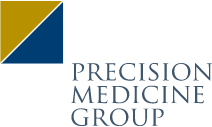First published in The Science Advisory Board
For many scientists working in academia, the idea of switching careers to industry can be intimidating. But many scientists are making the move and are finding corporate work to be just as rewarding. One of them is Anuraag Sarangi of medical communications firm PRECISIONscientia.
After receiving a PhD in neuroscience from Vanderbilt University School of Medicine in 2009, Anuraag Sarangi’s career path led him from basic research to the biopharma business, where he now works in medical communications.
During graduate school, Sarangi was focused on neuro-oncology research on novel molecular mechanisms regulating the growth of gliomas, which make up about 80% of all malignant brain tumors. The results of his research were published in Nature Oncogene and other journals.
While experiencing success in academia, Sarangi found himself at one end of the drug development continuum — and gradually realizing he wanted to explore other stages of the process.
Although he readily admits the transition to business from academia can be different for everyone, he wants people to know that they have options. Sarangi is passionate about sharing his experience to help people who find themselves at a similar crossroads.
So, did you wake up one day and decide you wanted to join the biopharma industry?
No, it wasn’t a lightning bolt strike (laughs). It was more a gradual self-realization as a scientist about where my interests and passions were, and how I wanted to contribute to the process of bringing new therapies for patients to the clinic.
I transitioned from academia, where I was going deep into a specific area of research and moved into industry as I learned more and was exposed to it. I saw that I could explore many more areas of biomedical innovations being developed for patients or in clinical use by physicians.
Can you talk more about your move toward industry?
So, think about the development continuum of new therapies — they move from a scientific hypothesis to preclinical development, to clinical testing, to regulatory approval, and use in clinic. I had been working at the preclinical development part of the continuum in academia; for example, researching how the hedgehog molecular signaling pathway regulates progenitor cells during embryogenesis and tumorigenesis in the nervous system.
Anuraag Sarangi, PhD, of PRECISIONscientia
During my scientific training, I developed two strong interests that became motivating factors to transition to industry. The first one was my interest in moving toward the “other end” of the drug development continuum. I found I wanted to make contributions to the development and use of innovative medicines when they are in clinical development (or are approved) for use with patients.
To further explore this interest, I focused on research that was translational in nature and relevant to exploring therapeutic approaches for brain cancer while working collaboratively with a multidisciplinary team of scientists and clinicians. So, I was trying to broaden my understanding of translational science.
The second factor involved interest in the business aspect of scientific advancement and bringing new therapies to the clinic. I explored this interest during graduate school by co-founding and serving as co-director of the academic chapter of the Tennessee Biotechnology Association (now Life Science Tennessee), the goal of which was to foster collaboration between academia and industry scientists and executives. This also allowed me to broaden my sphere of understanding, knowledge, and learning of the biopharma industry so that I was exposed to other areas that might be exciting for me to pursue.
How did it all work out?
Quite well. During a networking event in 2010 at University of North Carolina at Chapel Hill, where I was doing a postdoc, I met an executive who worked at PRECISIONscientia. We discussed medical communications and the work they were doing with life sciences, biotech, and pharmaceutical companies to help develop and commercialize innovative medicines for patients in need. I joined PRECISIONscientia in a strategic consulting role and over time, I grew my skill set and was leading teams that were educating medical and patient communities on therapeutic advances. It broadened my knowledge and experience in a variety of biomedical research areas, beyond a specialization in a single niche area.
It also was a place where I was surrounded by like-minded individuals with a strong passion for science, an interest in business, and the desire to use scientific training to help bring innovative therapies to patients. I was collaborating with talented and dedicated colleagues with specialized skill sets that complemented each other, and we delivered exceptional results. It was satisfying on several levels.
You mentioned you had lessons you learned during your transition to industry. Care to share them?
Of course!
1. You will feel a bit unmoored. It’s OK to feel that way.
It is your mind’s way of telling you that you need to continue to explore new areas. Sit with it, listen to it, and continue experimenting. Don’t settle on your first theory of what you should be doing. Test it. Evaluate it and test it again. If it doesn’t work, try something else. But keep trying. Franklin Roosevelt said, “Take a method and try it. If it fails, admit it frankly, and try another. But by all means, try something.” This approach can lead to amazing new possibilities.
2. Lean on your support network.
Mentors and people in your corner can help you along the path. I received plenty of encouragement and support from mentors during grad school and my postdoc to explore industry career options. Talk to them. Be inquisitive, ask questions, and continue to dig deeper.
3. Networking is essential and a skill to develop throughout a career.
Talking and learning, as well as gathering knowledge about your industry is never wasted time. It may be something that some in academia shy away from because it might make them uncomfortable, but the business of healthcare is a people business. Connecting with alumni from academia is a great starting point because you will find that you are not the only person to think about making a transition. Also, people like helping others, so don’t be afraid to ask for advice.
Anuraag Sarangi , PhD, works in business strategy at PRECISIONscientia, where he is focused on diving deep into scientific research and market insights, developing scientific and business strategy for new biopharma clients. Under the umbrella of Precision Value & Health, teams support innovative therapies throughout the continuum of development and commercialization. For example, Precision Advance, a collection of interconnected services and teams, brings together the company’s broad experience in clinical development, regulatory, manufacturing, and commercialization to support the needs of biopharma companies bringing cell or gene therapies to market.







